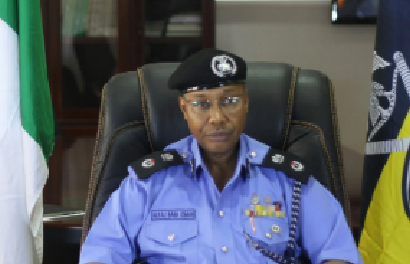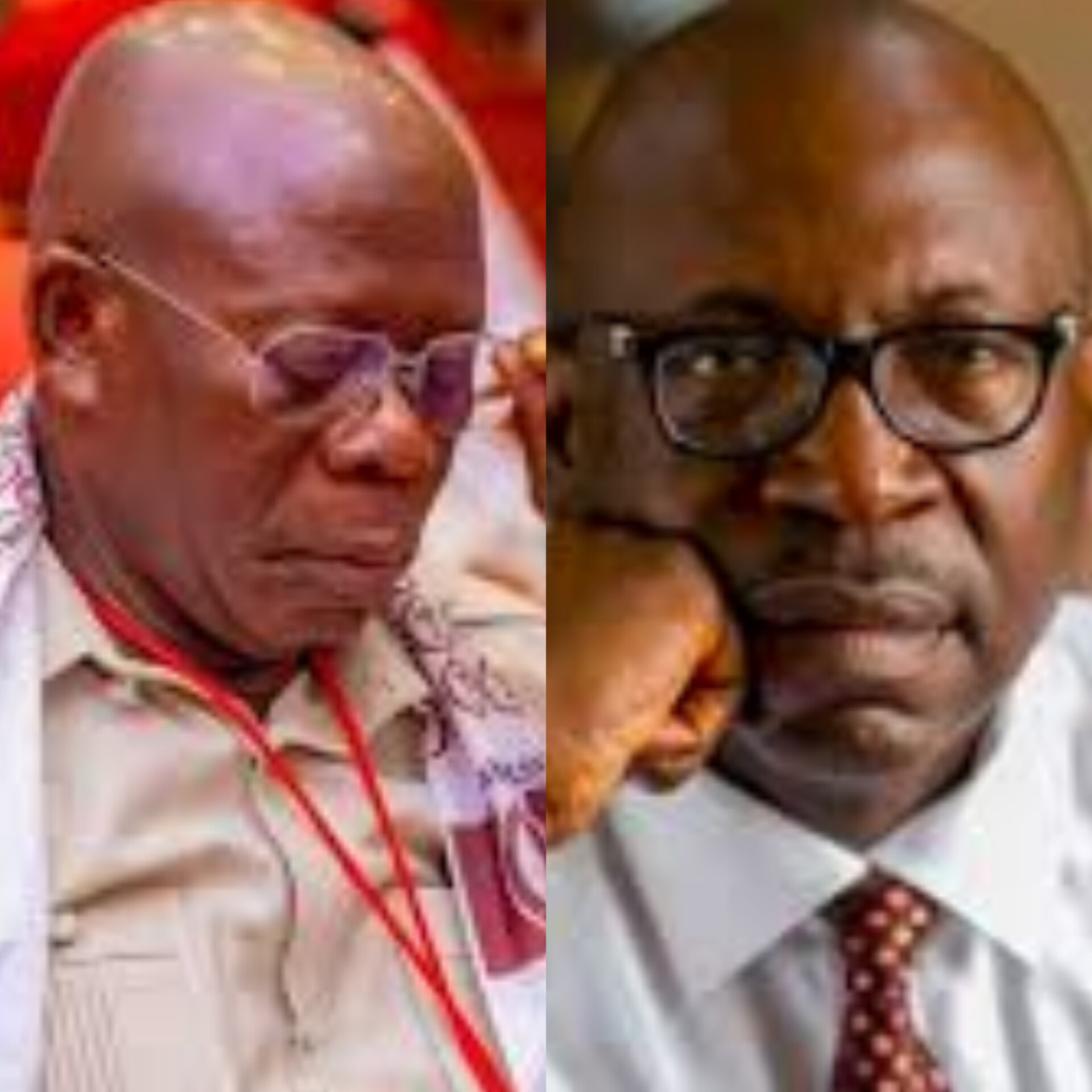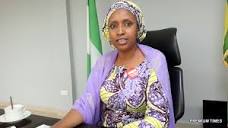By Tunde Olusunle
Perhaps the highlight of the recent elevation of senior police officers into higher ranks, was the simultaneous promotion of a married couple of the force, to the rank of substantive police commissioner. Kehinde Patrick Longe, and his wife Yetunde, who were both deputy commissioners of police, moved up to the next rank, as contained in a press release from Police Service Commission, (PSC), Monday December 20, 2021.
Instructively, husband and wife were enlisted into the Nigeria Police Force (NPF), same day, March 3, 1990, as Cadet Assistant Superintendents of Police (ASP). This was upon the successful completion of training at the Police Academy, (POLAC), Wudil, Kano State. The Longes met at the police academy therefore and developed a relationship which has bloomed into a long-subsisting marriage.

Lifted up the ladder of seniority in the police in that same exercise, was the “better half” of another couple, who also met at the same police institution, at the same time as the Longes, and also became husband and wife! In this second instance, the husband was promoted this same time in December 2020. The wife, however, was recognised in the more recent exercise. Availability of positions or vacancies, in the states of origin of officers under consideration, sometimes becomes an issue when moving them upwards at this level. We therefore have a scenario, which has similarly produced a “police commissioner couple,” from the police academy, whose relationship and marriage has straddled through more than three decades, thus far.
I have a longstanding relationship with the latter couple, which is as intertwined as it is interesting. I first met Tony Adejoh Olofu, August 1985, at the Alvan Ikoku College of Education, (AICE), Owerri, Imo State, which used to be the permanent orientation camp of the National Youth Service Corps, (NYSC), in our time. Olofu from Benue State, studied sociology at the University of Jos, while I came from what is now the old Kwara State, having read English, at the University of Ilorin. Trust young people, there would usually be points of mutual intersections, in the kind of atmosphere provided by the youth corps camp. Our network of friends would broaden to include Dede Mabiaku, a top Afrobeat artist who studied theatre arts at the University of Benin, underwent his NYSC primary assignment in “Charly Boy Studios,” Oguta, Imo State, and Armstrong Idachaba, also a theatre arts graduate from Unijos, until recently, acting Director-General of the National Broadcasting Commission (NBC), among others.
While Olofu was deployed to the same AICE for his primary assignment, I was posted to Imo State Polytechnic, Nekede, Owerri. To this extent, we were both in the state capital, and also in the same Community Development (CD) group. CD groups were constituted by the alphabetical arrangement of the names of NYSC members, which meant that Olofu was in the same group as “Olusunle.” To this extent, we rode in the same truck to the “NYSC Farm” located at Emekuku, on the outskirts of Owerri, every week, for our CD. My accommodation at the time was at Ikenegbu Layout, Owerri, a walking distance from the NYSC state office, so we would typically stroll to my place, upon our return from Emekuku, to have a bite and share the “communion of the bottle.” We exchanged weekend visits between each other, even as I “inducted” Olofu into the culture of watching live football. Till date, he tells our mutual friends that I dragged him to the stadium for the first time ever, those days when “Iwuanyanwu Nationale” shared the spotlight of soccer in the South East, with “Rangers International” of Enugu.
We went our different ways upon the completion of the NYSC in 1986. In the absence of the kind of telecommunications technology we have today, we resorted to exchanging letters, sent through the Nigerian Postal Service, (NIPOST), to keep in touch. And somehow, many of those letters came through, even if they took a little while. I received one such letter from him sometime in mid-1993. By this time, I had been appointed Director of Information and Public Affairs in the administration of the late first civilian governor of Kogi State, Prince Abubakar Audu. Olofu was serving in one of the police formations in the country. I’m trying to remember some lines from that correspondence now: “… Should you receive this letter, it serves as your formal invitation to my wedding to your sister from Kogi State and I will appreciate your presence and company, please.”
I got into perhaps the largest *agbada* possible on Saturday July 22, 1993 and drove from my base in Lokoja, to Okene for the event. Olofu sighted my grand costume from the high table where he was seated with other dignitaries, as I made my stately entry into the venue of the programme. He promptly directed one of the ushers to guide me to join special guests on the high table. As I exchanged pleasantries with the big people and the couple, I saw in the bride, a face I could remember very well from my alma mater, Unilorin. The mini campus of the institution was so very close knit in our generation, that you would have encountered a broad spectrum of schoolmates in the cafeteria, library, faculty blocks, lecture room zone, *Africa Hall,* the prime event centre of the school, and so on.
The bride was indeed my sister. Rhoda Adetutu Emmanuel, (her maiden name), was an alumnus of Unilorin where she studied political science. She graduated in 1986, a year after my generation of students. She had earlier attended the School of Basic Studies of the Kwara State College of Technology, (SBS), for her advanced level, and was also a year behind our set. Her erstwhile faculty in Unilorin, “Business and Social Sciences,” abbreviated by students as “BSS,” was the most geographically contiguous to our own faculty of Arts, so it was possible to remember the faces of many people from both faculties. Following the August 27, 1991 creation of nine new states by President Ibrahim Babangida, Kogi Central, Mrs Olofu’s zone, and Kogi West, my senatorial zone, had been extracted from the old Kwara State, and joined with what is now Kogi East, taken out of the old Benue State. She was fittingly therefore, my sister.
The newly wed Mrs. Rhoda Adetutu Olofu, carried herself with requisite dignity and self respect in school. Unmistakably pretty, she was a bit reserved and very selective of her friends and associates. Those of us who were outgoing students, “card-carrying” party freaks as it were, who regularly crisscrossed parties and pubs from “Sawmill,” to “Adewole Estate,” to “GRA,” to “Niger Basin,” on the night time streets of Ilorin, knew ourselves. We also knew our female “accomplices,” who were regularly on the “Groove Train,” with us. Mrs Olofu was not one of them. In fact, we had a nickname for students whose daily itinerary in school, was the regimental route of: hostel, to the classroom and then to the library. We called them “triangular students!” She fitted this profile. The more unserious characters, who lived their lives between the Student Union Building (SUB) a one-stop-shop for liquor and culinary indulgence, and party venues in town, equally had their label. We festooned them with the acronym “NFA,” which translated as No Future Ambition!
With the dawn of democratic governance in 1999, I relocated from my old abode in Lagos, to Abuja, having been appointed a presidential aide by former President Olusegun Obasanjo. I had functioned as his media press secretary all through his campaign and he desired my membership of his team. Tony Olofu and I would be conjoined again. He had just returned from a peacekeeping operation under the auspices of the United Nations in Angola. Uncomfortable about the prospects of his family having to move around with him ever so frequently, in the name of routine postings and redeployments by the police, he desired a stable location for them. From his savings from the one-year UN assignment, he put up a modest bungalow in one of the satellite towns around Abuja and moved his family there.
Just like Olofu had anticipated, he got shuffled around fairly much by the NPF, serving as Commander, Mobile Police Squadron 25 (Mopol 25), Azumini, Abia State; Divisional Police Officer (DPO), Garki Division, Abuja, and Area Commander, Federal Capital Territory (FCT) Satellite Towns, with his office in Kubwa, among others. He has also been Commander, *Operation Doo Akpo,* a special security outfit in Bayelsa State; Deputy Commissioner of Police, Operations (DCP-Ops), Ebonyi State and Deputy Commissioner of Police, Criminal Investigations Department (DCP-CID), Bauchi State. Olofu has similarly been Commissioner of Police, Counter Terrorism Unit, (CP-CTU), at the Force Headquarters, Abuja. He was also Police Director of Operations and Intelligence, National Centre for the Control of Small Arms and Light Weapons, Office of the National Security Adviser (ONSA) and Commissioner of Police, Anambra State, respectively.
Rhoda Olofu has been much more stable than her husband, which has enabled her to keep the home properly, in the regular absence of her husband. Except for a brief period during which she served in Keffi, Nasarawa State Police Command, she has traversed various departments at the Force Headquarters, notably serving as Assistant Commissioner of Police in-charge of Establishment, (AC Establishment) and Deputy Commissioner of Police, Training, (DCP Training). She has also functioned as Deputy Commissioner, Research and Planning (DCP R and P), before her recent promotion.
In 2004, my family and the Olofus, visited Yankari Game Reserve, Bauchi State, for a weeklong excursion, as guests of the erstwhile governor of the state, Adamu Muazu. Children of both families have taken up the baton of the relationship between their parents, having been joined together in instances, by the educational institutions they attended. They are best of friends, regularly honouring invites to events organised by one another. From Olofu’s Otukpo home, to his village, Opaha, in Apa local government area of Benue State, I have been a serial guest. In the same way, Olofu has been a regular caller to my hometown, Isanlu in Kogi State and to Ilorin, where my parents live. Our families on both sides, have fully been incorporated into one another, such that I can call and relate very well with Olofu’s siblings, notably Dennis, David and Baba, just the way he nicknamed my brother, Toba Olusunle “Oshiomhole,” for feigning modesty, despite being a very senior government official.
We equally share mutual friendships with the same people in many instances, and relate with each other, as though we were playmates from childhood. Olofu doesn’t need my consent to banter with and “harass” my old friends like Gbenga Ayeni (a professor in Connecticut); Tivlumun Nyitse (chief of staff to the Benue governor), or Femi Ajisafe (a retired director from the federal ministry of transportation). In the same way, I can barge into his long time associates like John Ofotu (in England); Egwurube Obande (a businessman) and Garuba Uloko (formerly of the Nigerian Customs). As different from the vainglorious exhibitionism of many people in the uniformed services, you are not going to find police personnel milling around the abode of the Olofus, who are famous for their simplicity and unassuming carriage.
Mrs. Rhoda Olofu, potentially, joins the growing list of women who have risen to distinguished heights in the police force. Abimbola Ojomo, was the first female Deputy Inspector General of Police (DIG), appointed by the Obasanjo administration, January 22, 2002. Ivy Uche Okoronkwo is reputed as the very first female officer to head a state command, as one time Commissioner of Police in Ekiti State. She also rose to the position of DIG October 5, 2010. Farida Mzamber Waziri, an AIG and attorney, was the first female to be appointed Chairman of the Economic and Financial Crimes Commission (EFCC), (a serially male dominated position since the inception of the agency under the Obasanjo administration), in 2008. Aishatu Abubakar, a veterinary doctor, recently became the first woman specialist in the police, to make the AIG cut.
As an alumnus of the “Better By Far” University of Ilorin, Mrs Olofu expands the number and quality of alumni of the institution, who have become top police officers and attained the rank of Commissioner, at the very least. They include Gbenga Adeyanju (who retired at the rank of AIG), Ayo Oguntuase (recently retired as police commissioner), Amaechi Elumelu, Abdulkadir Mohammed, Ayoku Yekini, (mni), Kehinde Longe, Adepoju Ilori, and many others. Erstwhile vice chairman of the Unilorin Alumni Association, FCT Chapter, Sa’adat Ismail, was also elevated Deputy Commissioner of Police, earlier this year.
Tony Olofu was born October 24, 1963, and his wife July 22, 1965. Coincidentally therefore, the wedding anniversary of the couple is the birthday of the wife. I have teased him in the past, that he applied police sense in consenting to having his wedding in 1993, on the day of the week which coincided with his wife’s birthday, because he wanted to escape having to entertain friends so many times, in the year! The Olofu union is blessed with lovely, well raised children.
•Tunde Olusunle, PhD, poet, journalist, scholar and author, is a Member of the Nigerian Guild of Editors, (NGE).





